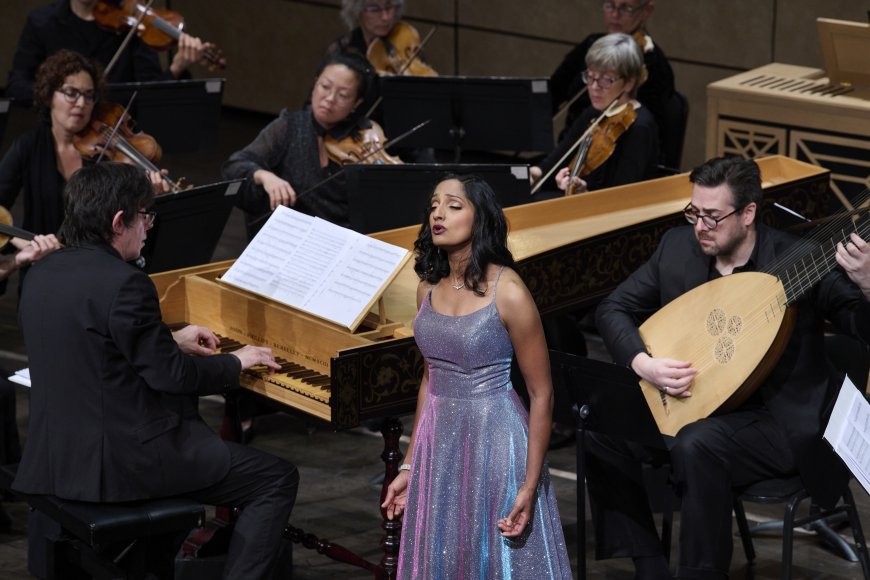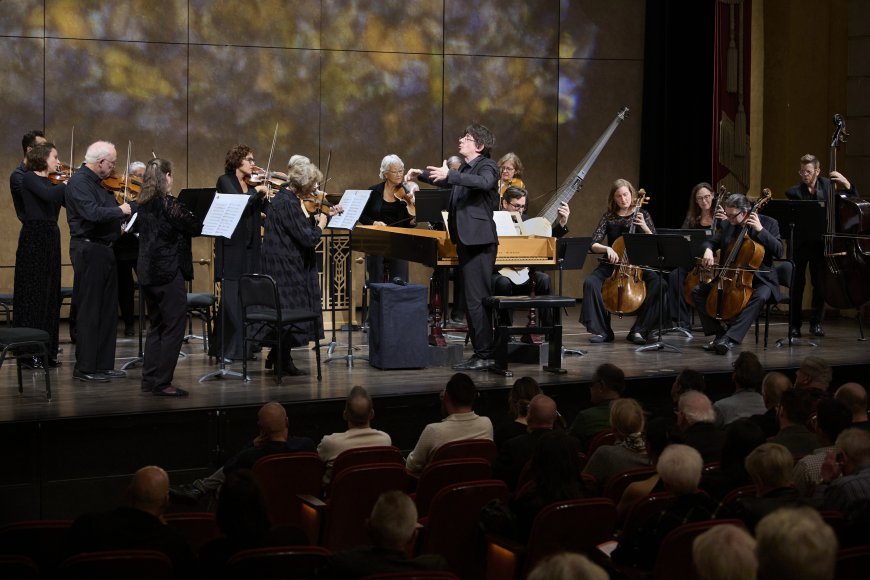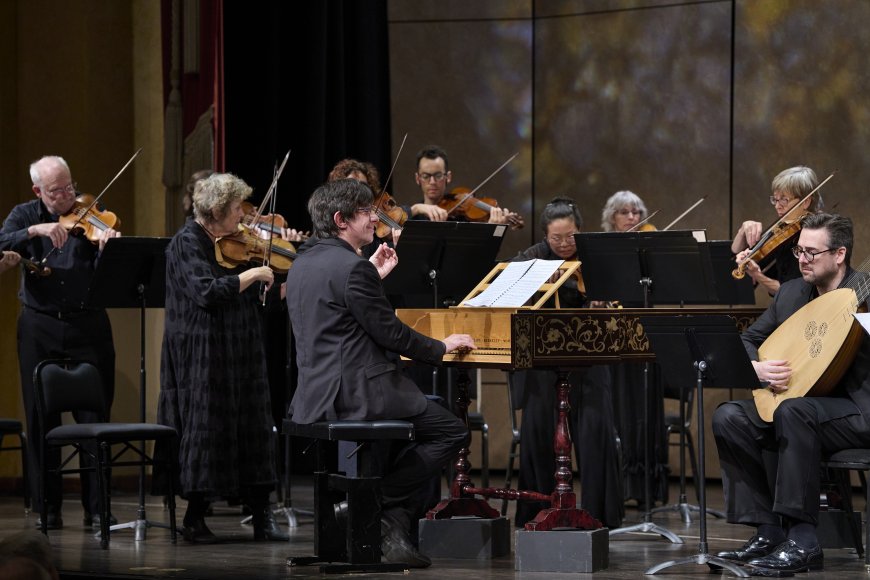
Philharmonia Baroque Orchestra opened its new season this past weekend with a splendid show of musical fireworks. In a program of stormy Italian concertos and cantatas, which I heard at First Congregational Church of Berkeley on Saturday, Oct. 18, the string sections of the Bay Area’s longtime early music band played at the top of their form, led by visiting conductor Václav Luks and joined by the terrific Bay Area-based soprano Maya Kherani.
Philharmonia Baroque is in a period of transition following the 2024 departure of Richard Egarr, the former music director. Newly appointed Music Director Designate Peter Whelan will take up the post in July 2026.
For this program, Luks — who directs Collegium 1704, a Prague-based early music group — picked a challenging set of virtuoso pieces, all of which dig deep into the emotional contrasts dear to Baroque composers. He conducted with grace and intensity, coaxing a colorful palette of groans, sighs, tears, and tenderness from the orchestra.
The passionate minor-key mood of the program was set at the opening with a powerful concerto by a once-famous, now generally forgotten Venetian master with the splendid name of Baldassare Galuppi (1706–1785), who fashioned a rich broth of spooky and bloodcurdling sound effects.

In addition, three vocal cantatas focused on the torments of women, abandoned in love or oppressed by guilt — not dissimilar to the much-abused women of 19th-century opera. For my taste, two of these rich concoctions would have been sufficient.
Kherani delivered these troubled solos with fiery dramatic expressivity and tender compassion.
Handel’s Armida abbandonata (1707), composed during the composer’s early stay in Rome, highlighted Handel’s mastery of dramatic vocal writing and showed Kherani at her finest. Her voice, most powerful in the upper register, was fully equal to the startling leaps and vocal pirouettes that Handel requires. Rapid-fire scales and arpeggios came out effortlessly and hit home. There were some audible gasps from the audience.
To close the program, Kherani sang Vivaldi’s sacred cantata In furore iustissimae irae (the title says it all: “in an outburst of righteous wrath”). It ran on much the same high-octane fuel as the Handel cantata — here nicely tempered with a short and moving episode of tender devotion.
Benedetto Marcello's Arianna abbandonata (composed in the mid-1720s about a different abandoned princess), had plenty of overheated verve but lacked the punch and sophistication of the Handel cantata.

More hot sauce was served up with a concerto by the Neapolitan composer Francesco Durante (1684–1755), sparked by splendid solo work by the three principals of the upper strings — concertmaster Elizabeth Blumenstock, principal second violinist Manami Mizumoto, and violist Jessica Troy.
The orchestra boasts a fabulous basso continuo section, full of the musical energy that typically drives Baroque passion. For this concert, Luks was on the harpsichord, with principal cellist William Skeen and cello colleagues Eva Lymenstull and Elisabeth Reed, double bassist Kristin Zoernig, Kevin Payne on theorbo (bass lute), and Hanneke van Proosdij on organ.
The near-capacity audience was obviously thrilled despite the unexpected heat of Saturday afternoon. From start to finish, this strong opening concert shows the orchestra is in great shape and bodes well for the rest of the year.

